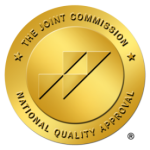The Pillar of Recovery: Building a Support System Post-Rehab
Completing a rehabilitation program is a commendable achievement, a true testament to an individual’s commitment to breaking free from the chains of addiction. However, the journey of recovery doesn’t end when one steps out of a rehab center; it’s an ongoing process. At the heart of this continuous journey is a robust support system. Let’s dive deeper into the significance of this support network and how to cultivate it.
Why a Support System is Crucial
The world outside rehab can be fraught with triggers, challenges, and temptations. A support system acts as a safety net, a group of individuals or resources that collectively offer emotional support, understanding, and guidance. This group of individuals can prevent relapses, provide encouragement during low moments, and celebrate recovery milestones.
Forms of Support
It is important to remember that support comes in many forms. While having friends and family who support your recovery journey is crucial, it is also vital that you create a support network outside of your loved ones. Let’s dive into the various forms of support that can help you in your post-rehab recovery.
Alcoholics Anonymous (AA) & Narcotics Anonymous (NA)
These are fellowship programs where individuals in recovery meet, share their stories, and support each other. The 12-step program, central to both AA and NA, offers a structured approach to recovery. Regular meetings provide an opportunity for members to tap into a community that genuinely understands their journey.
Therapy & Counseling
Continuing therapy post-rehab can be immensely beneficial. A therapist offers a safe space to process feelings, navigate challenges, and develop coping strategies. They provide an external perspective and professional guidance tailored to individual needs.
Family & Friends
Rebuilding and leaning on personal relationships is essential. Loved ones often provide emotional support, understanding, and encouragement. Engaging in family therapy can also help mend relationships strained by addiction.
Support Groups
Beyond AA and NA, numerous support groups cater to specific addictions or challenges. These groups provide a sense of community and belonging, helping individuals realize they’re not alone in their journey.
Sponsors
In groups like AA or NA, a sponsor, typically someone who’s been in recovery for a longer period, offers personal guidance and support. This one-on-one relationship can be instrumental, especially during challenging moments.
Sober Living Homes
For those who aren’t ready to transition directly into their previous environment, sober living homes provide a structured, drug-free setting. These homes emphasize responsibility, mutual support, and personal growth.
Cultivating Your Support System
Building a robust support network post-rehab requires effort and openness:
Be Proactive
Attend meetings, engage in community events, or join support groups. Actively seek out resources that align with your recovery journey.
Communicate
Open up to loved ones about your needs, boundaries, and feelings. Honest communication builds understanding and strengthens bonds.
Stay Engaged
It’s easy to isolate oneself, especially when faced with challenges. However, staying connected, even in small ways, can make a world of difference.
Diversify Your Support
Relying on a single form of support can be limiting. Engage in various support avenues to ensure a holistic recovery experience.
Finding A Support System Post-Rehab
Recovery is an ongoing journey, one with its peaks and troughs. But with a solid support system, the path becomes clearer, challenges more navigable, and the destination achievable.





